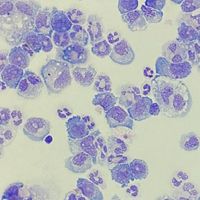Early Prostate Cancer Detection in Transgender Women
Prostate cancer is the second-leading cause of cancer-associated death in men after lung cancer. Prostate cancer is highly common in which 1 in 8 men will be diagnosed with the disease in their lifetime. It is estimated by the American Cancer Society that there will be over 298,000 new cases of prostate cancer in 2024. Most men are diagnosed at 65 years old or older with a significantly lower chance of diagnosis under 40 years old. Symptoms associated with prostate cancer include trouble urinating, reduced urine stream, blood in urine, bone pain, rapid weight loss, and fevers.
The prostate specific antigen (PSA) test is an efficient assessment to measure the amount of prostate-related protein in the blood that would indicate cancer. The test was created by Dr. T. Ming Chu, a scientist from Roswell Park Comprehensive Cancer Center in 1984 to detect prostate cancer at an early stage. For example, PSA levels at or above 2.5 ng/mL is abnormal (with a normal range between 1.0 and 1.5 ng/mL) and would indicate an individual has cancer. While much work and research has gone out to spread awareness about prostate cancer in cisgender men, little work has been done to inform the transgender community about the impact of prostate cancer while on gender-affirming hormone therapy.
A recent article from the Journal of the American Medical Association (JAMA), by Dr. Stephen Freedland and others, demonstrate that transgender women score low on prostate cancer screening exams and as a result provides inaccurate scores. Specifically, transgender women score much lower than typical PSA test scores. This could indicate that the threshold to detect cancer is different for transgender women compared to cisgender men.
Gender-affirming therapy for transgender women does not include the removal of the prostate gland. In many cases, these women are put on estrogen, which is why their PSA levels are so low. Scientists in the article suggest interpreting low PSA levels in transgender women with caution as it may not indicate the absence of cancer. The study analyzed records from the Veterans Health Administration that spanned 23 years. In total, records from 210 patients at 40 years old or older on estrogen showed that these women have significantly lower PSA levels and only received additional screening when their PSA levels increased. Unfortunately, an increase in PSA within this population could mean cancer detection at a much later stage. This is a critical finding that can be overcome through meticulous screening techniques and interpretations.
Freedland and others have highlighted a key disparity in transgender health. Currently, there is no specific PSA range for transgender women. However, by recognizing what PSA levels transgender women are likely to have prostate cancer would transform the field and improve transgender women health. A co-senior author Dr. Mathew R. Cooperberg, highlights that as more transgender women have access to gender-affirming therapy, it is necessary to consider the long-term cancer risks with retained organs. Scientists and physicians in the field are still trying to understand how estrogen influences prostate cancer risk. By improving our knowledge of prostate cancer and proper PSA ranges for transgender women, physicians can more accurately and appropriately treat the transgender community for cancer.








